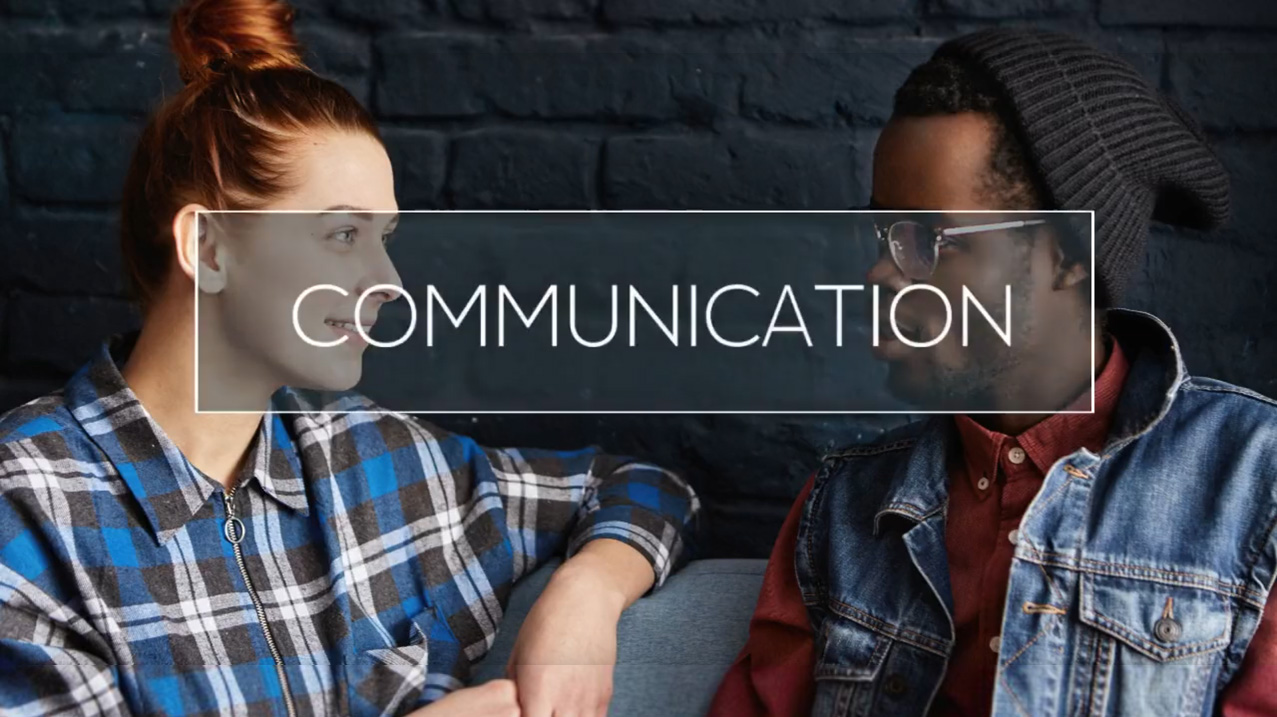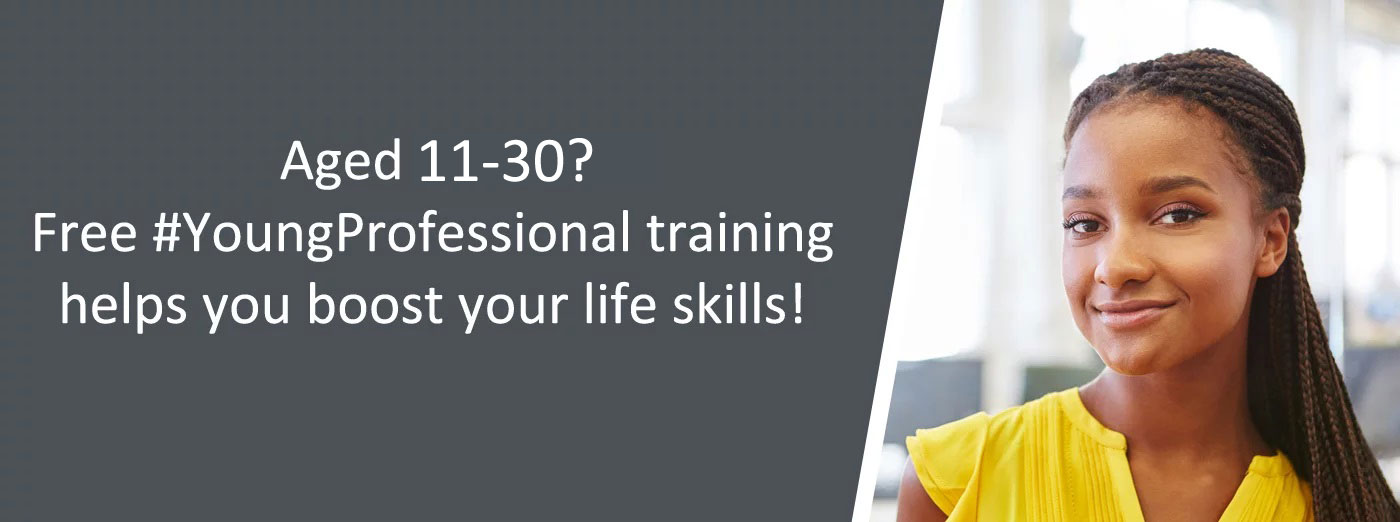
What are communication skills?
Communication is an important life and work skill!
Communication is about getting your thoughts across to someone else in a way they can understand. Going deeper, it’s about understanding how to communicate in way that makes people want to listen to what you say. PLUS: Communication is about listening to the other person, too!
3 Ways to listen/share
- Talking
- Active listening with no interrupting
- Writing
- Digital (e.g. formal emails)
Communication confidence
- Social situations
- Presenting yourself to others
- Persuading and negotiating
Why Are Communication Skills Important?
You have been communicating since you were born. Babies cry to get their parents’ attention, and as we grow we develop more sophisticated ways of letting people know what we want, as well as listening to others.
Most of us know how to communicate, but not everyone is good at communication in work and beyond. However, you can grow your communication skills over time.
To be a good communicator you need to get across your ideas and opinions well, but also listen to others and take their ideas into consideration. Effective communication means that everyone is on the same page.
How to improve your communication skills
Get communication tips with FREE Young Professional skills training
Communication Skills For Students
4 important communication skills to work on as a school, college or uni student are:
- Reading
- Writing
- Expressing yourself well
- Listening carefully
Building communication skills in school will help you:
- Understand and take in what’s been said and taught
- Present your work in a clear way to teachers, from homework to reports
- Make presentations and speeches with more confidence
- Ask questions that help you improve your understanding
- Share your ideas or thoughts in a way that makes people want to listen to them.
Can You Name 10 Communication Skills?

Communication Skills For Work
In work, communication skills are important for getting the best results at meetings.
Good communication skills help everyone at the meeting feel informed, because they know what needs to be done and why. Communication skills can also make people in the meeting feel good about taking on responsibility to help a project.
Building communication skills at work will help you:
- Do presentations and reports with increased confidence
- Have a great phone manner for customer service AND job interviews
- Send professional emails with no typos
- Get on with your manager and co-workers
- Listen carefully to what you need to do, so you understand what’s needed
- Share your ideas in a way that employers and co-workers love
- Network to find new opportunities.
Good communication is important in the world of work. It helps you network, get along with people, understand what you’re meant to do, and helps you share your own great ideas and suggestions. It can help you move forward and shine.
Growing Your Communication Skills – Try These Activities
Here are just a few examples of ways you can build up the communication skills you’ve already got:
Volunteer to give a presentation
Public speaking might seem daunting but it is a great way to develop confidence. Look at TED talks for good examples.
Write a blog
Writing articles or blogs is a great way to develop written communication skills.
Watch and learn from the body language of others
You can often tell if people get on or not by watching their body language.
Contribute ideas to a team project
It might seem hard to speak up but if you have a good idea to share then speaking up can help the project and help you build confidence, too.
Do practice job interviews at home
If you have a job interview coming up, practice with someone you know first so you can think about questions being asked and how you come across.
Practice online meetings
The pandemic made online meetings an everyday thing in student life and the world of work. Those are really important communication skills you’ve been picking up!
How To Show Your Communication Skills To Employers
Creating a good CV
Your CV is a communication tool, so it’s important to show your written communication skills at their best.
Your CV personal statement is a few lines expressing your personal strengths and achievements. It’s a great chance to communicate to your employer why YOU are PERFECT for the opportunity – in a way that is short and sweet!
Writing emails
When writing emails or talking to people, ensure you use appropriate language and tone.
Communication is a life skill. You can grow it over time.
There are so many different methods of communicating, and also many ways you can strengthen your communication skills.
Job interviews
Body language says a lot about you. To be a great communicator you need to be aware of how you come across even when you’re not speaking, not just in job interviews but in day-to-day life and work situations.
When you’re at a job interview or writing a covering letter you have already shown a prospective employer your communication skills. Make sure you are prepared and take some time to think about what exactly you want to communicate about yourself. If you’ve practised answering common interview questions, you should be well on your way to showing off great communication skills!
In a job interview you may also be asked about specific types of communication. For example, if you’re going for a role where you will deal with customers you will probably be asked if you’ve dealt with customers in the past, or dealt with difficult people in general, and how you handled it. It’s good to have a think before the interview about some examples where you’ve communicated well in different settings and with different types of people.
Try This Exercise!
See if you can think about the questions below. It’s useful to you to come up with actual examples. It’s especially useful to come up with examples from your own life and work experience.
- What are the main types of communication? Name three.
- How could you develop your communication skills? Give an example.
- How can you demonstrate good communication skills? Give an example.
- Apply the STARRS method to a past situation where communication was important. What did you do well? How could you do better next time?
Your Next Steps
From writing great emails to delivering fantastic presentations, take the time to practise, especially in the areas you’re less confident in.
Try asking a friend, teacher, or family member how well they think you communicate in different ways like writing, speaking, body language, etc. and if they have any pointers to help you improve.
Remember, some of the best communicators weren’t naturally great at communicating but they took the time to learn and build their skills. You can do that too.
Free Online Courses For Young People
Now you can develop life and work skills in your own time.
Preparing For Your Future

Aged 14-16?
Sign in as a Young Professional to get automatically enrolled.
Have you signed up for FREE Young Professional training?
Congrats! You’ve been reading up on one of the key life & work skills:
Sign up today. Own your future.
Skills + Careers Confidence
Want a big boost in your life and work skills? Sign up to our free online Young Professional programme today!
Get FREE skills training when you sign up. Get support with your personal confidence, positive attitude and coping with change!
Self Belief | Communication | Teamwork | Problem Solving | Self Management
Boost your skills and careers confidence with FREE online courses. Complete them your own pace and get a certificate for your CV! Sign in as a Young Professional to get automatically enrolled.
Your First Job / Paid Experience
Looking for jobs and opportunities near you? Sign in as a Young Professional to see the latest jobs, apprenticeships, grad schemes, CV workshops, career events and early career opportunities in your area!
Be Yourself
For Students
For Teachers
Teachers - see how to use the Young Professional programme in your school or college, with lots of free teaching resources at your fingertips.












